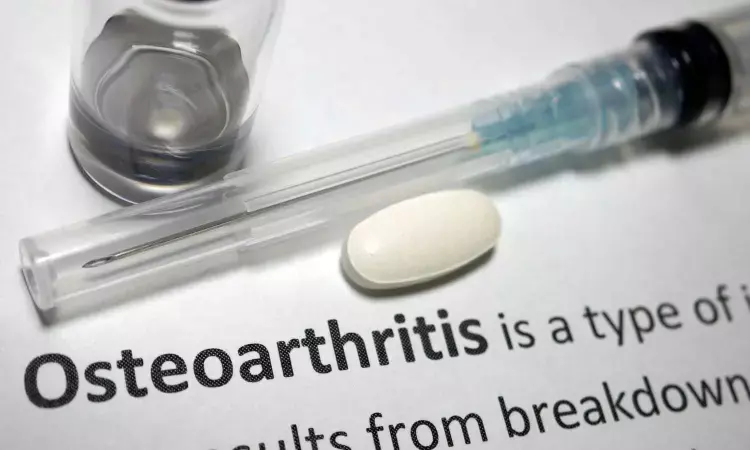- Home
- Medical news & Guidelines
- Anesthesiology
- Cardiology and CTVS
- Critical Care
- Dentistry
- Dermatology
- Diabetes and Endocrinology
- ENT
- Gastroenterology
- Medicine
- Nephrology
- Neurology
- Obstretics-Gynaecology
- Oncology
- Ophthalmology
- Orthopaedics
- Pediatrics-Neonatology
- Psychiatry
- Pulmonology
- Radiology
- Surgery
- Urology
- Laboratory Medicine
- Diet
- Nursing
- Paramedical
- Physiotherapy
- Health news
- Fact Check
- Bone Health Fact Check
- Brain Health Fact Check
- Cancer Related Fact Check
- Child Care Fact Check
- Dental and oral health fact check
- Diabetes and metabolic health fact check
- Diet and Nutrition Fact Check
- Eye and ENT Care Fact Check
- Fitness fact check
- Gut health fact check
- Heart health fact check
- Kidney health fact check
- Medical education fact check
- Men's health fact check
- Respiratory fact check
- Skin and hair care fact check
- Vaccine and Immunization fact check
- Women's health fact check
- AYUSH
- State News
- Andaman and Nicobar Islands
- Andhra Pradesh
- Arunachal Pradesh
- Assam
- Bihar
- Chandigarh
- Chattisgarh
- Dadra and Nagar Haveli
- Daman and Diu
- Delhi
- Goa
- Gujarat
- Haryana
- Himachal Pradesh
- Jammu & Kashmir
- Jharkhand
- Karnataka
- Kerala
- Ladakh
- Lakshadweep
- Madhya Pradesh
- Maharashtra
- Manipur
- Meghalaya
- Mizoram
- Nagaland
- Odisha
- Puducherry
- Punjab
- Rajasthan
- Sikkim
- Tamil Nadu
- Telangana
- Tripura
- Uttar Pradesh
- Uttrakhand
- West Bengal
- Medical Education
- Industry
Running not linked to higher prevalence of knee osteoarthritis

A new study published in The Orthopaedic Journal of Sports Medicine suggests that running may offer protection from nonspecific knee pain and is not linked to deteriorating patient-reported outcomes (PROs) or radiological indicators of knee osteoarthritis (OA) in the near term.
Running may be preventive against knee osteoarthritis, according to some studies that claim it raises the risk. The goal of this study, which was carried out by Jaydeep Dhillon and colleagues, was to update the systematic evaluation of the literature to ascertain the impact of running on the onset of knee OA.
Searching the Cochrane Library, PubMed, and Embase databases to locate studies examining the impact of cumulative running on the onset of knee OA or chondral injury based on imaging and/or patient-reported outcomes was done as a systematic review with level 4 evidence. It was searched for using the phrases "knee AND osteoarthritis AND (run OR running OR runner)." Patients were assessed using plain radiography, magnetic resonance imaging (MRI), and PROs (Knee Injury and Osteoarthritis Outcome Score, Health Assessment Questionnaire-Disability Index, and presence of knee pain).
The key findings of this study were:
1. The inclusion criteria were satisfied by seventeen studies (6 level 2, 9 level 3, and 2 level 4), which included 7194 runners and 6947 non runners.
2. The mean follow-up period for runners was 55.8 months, compared to 99.7 months for non runners.
3. Among the group of runners, the mean age was 56.2 years, whereas among the non runners, it was 61.6 years.
4. There were 58.5% more males overall. The non runner group had a considerably greater incidence of knee discomfort.
5. Numerous studies found no significant differences in the prevalence of radiographic knee OA or cartilage thickness on MRI between runners and non runners, despite one finding that the runner group had a significantly higher prevalence of osteophytes in the tibiofemoral (TF) and patellofemoral (PF) joints.
There is no proof that knee discomfort, OA, or the requirement for complete knee replacement at some point in life are more common. In fact, there is some data that suggests runners have a decreased chance of developing generalized knee discomfort than do non-runners.
Reference:
Dhillon, J., Kraeutler, M. J., Belk, J. W., Scillia, A. J., McCarty, E. C., Ansah-Twum, J. K., & McCulloch, P. C. (2023). Effects of Running on the Development of Knee Osteoarthritis: An Updated Systematic Review at Short-Term Follow-up. In Orthopaedic Journal of Sports Medicine (Vol. 11, Issue 3, p. 232596712311529). SAGE Publications. https://doi.org/10.1177/23259671231152900
Neuroscience Masters graduate
Jacinthlyn Sylvia, a Neuroscience Master's graduate from Chennai has worked extensively in deciphering the neurobiology of cognition and motor control in aging. She also has spread-out exposure to Neurosurgery from her Bachelor’s. She is currently involved in active Neuro-Oncology research. She is an upcoming neuroscientist with a fiery passion for writing. Her news cover at Medical Dialogues feature recent discoveries and updates from the healthcare and biomedical research fields. She can be reached at editorial@medicaldialogues.in
Dr Kamal Kant Kohli-MBBS, DTCD- a chest specialist with more than 30 years of practice and a flair for writing clinical articles, Dr Kamal Kant Kohli joined Medical Dialogues as a Chief Editor of Medical News. Besides writing articles, as an editor, he proofreads and verifies all the medical content published on Medical Dialogues including those coming from journals, studies,medical conferences,guidelines etc. Email: drkohli@medicaldialogues.in. Contact no. 011-43720751


